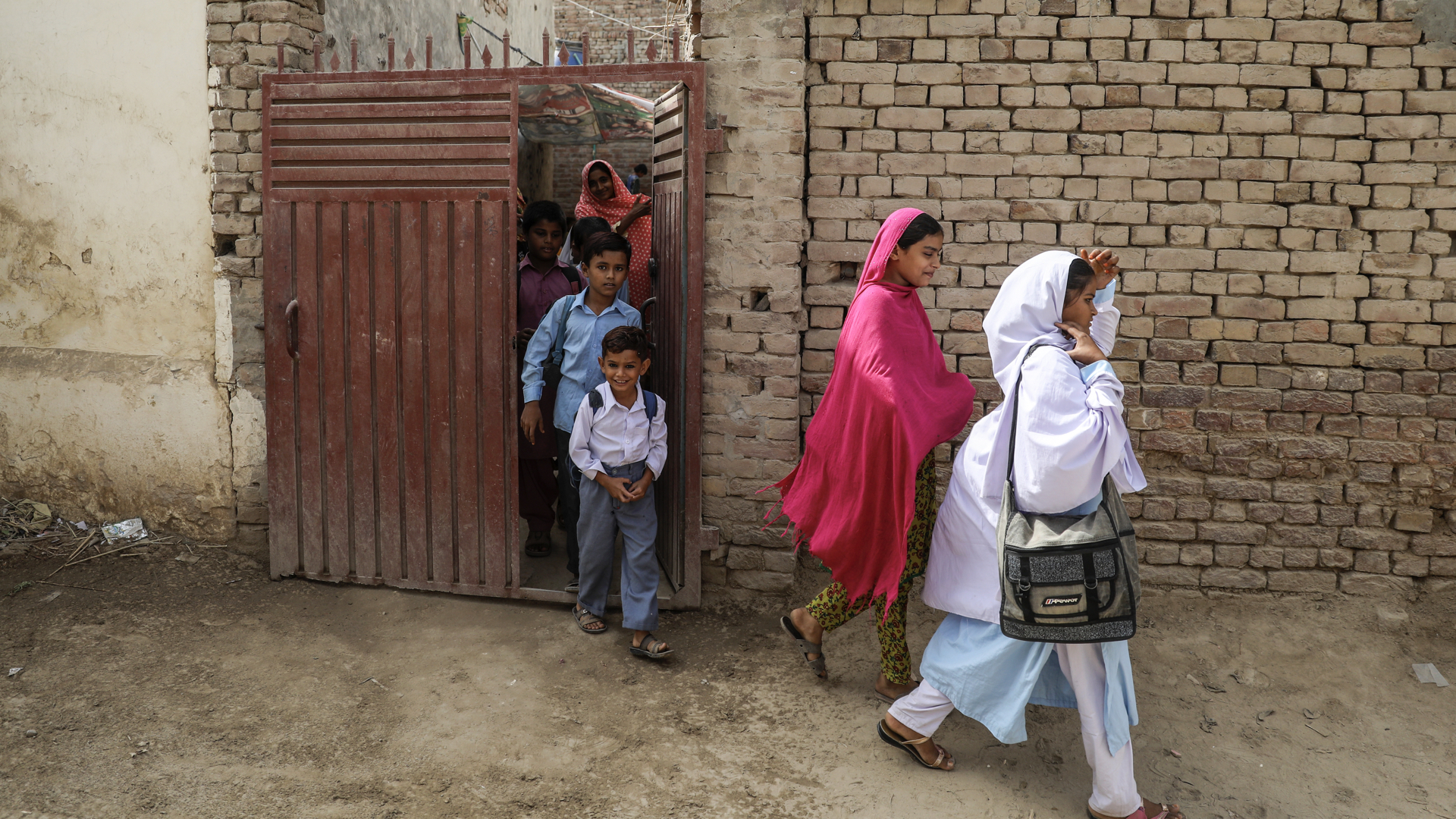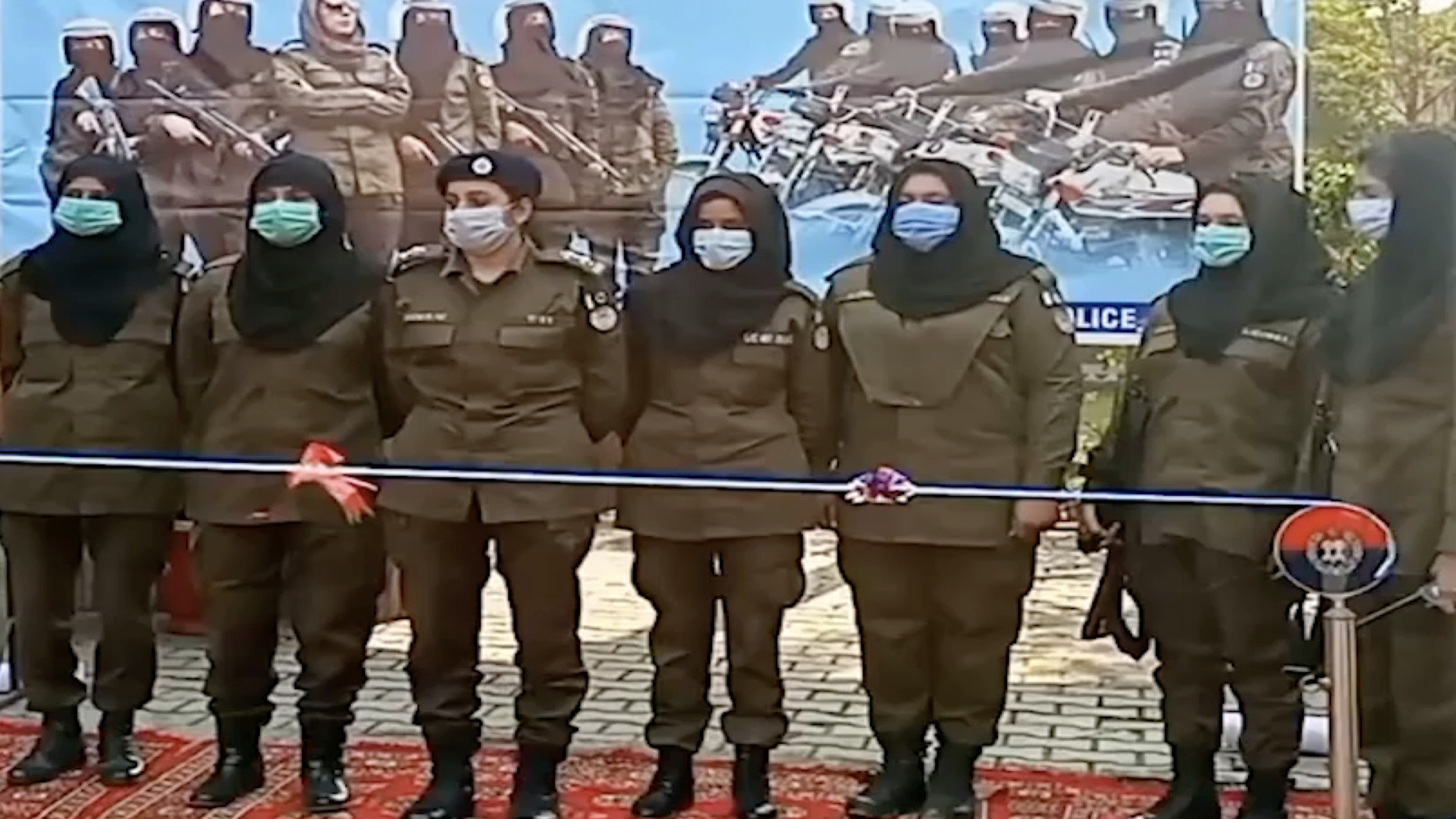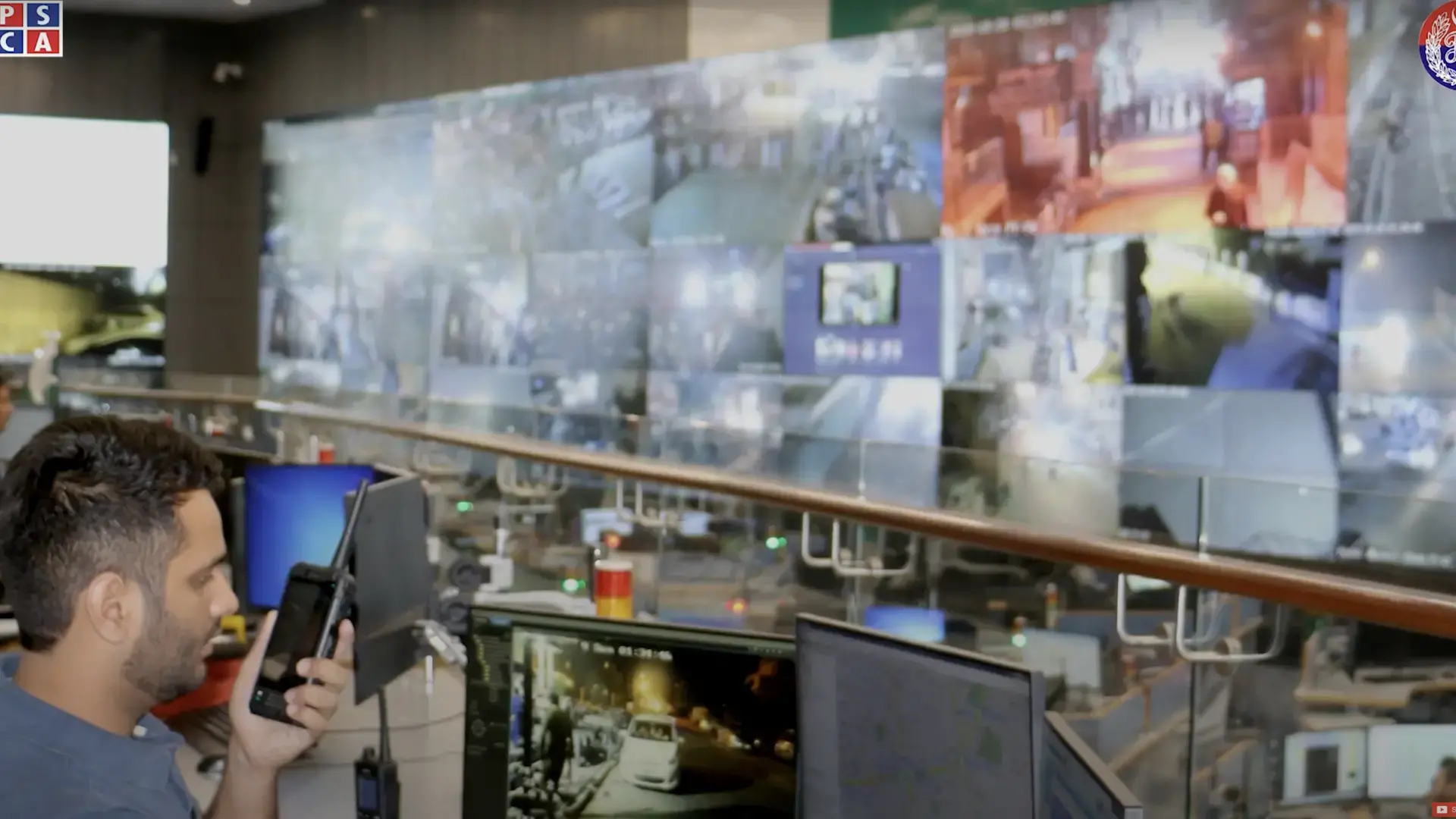“Collective wisdom” powering an app to protect women and girls in Punjab, Pakistan
“Collective wisdom” powering an app to protect women and girls in Punjab, Pakistan
Kamran Khan led the development of a smartphone app designed to protect women and girls from gender-based violence. The Punjab Women’s Safety App has been a lifeline for those facing violence during lockdown, as it allows users to send a text message alert that triggers an immediate police response to a geotagged location. What began as an idea in 2019 has grown into an innovative collaboration with UNFPA that supports the expanding safety platform.
Kamran says that the reason the app was needed was because it was not possible to accurately pinpoint where helpline callers were located. “We were facing problems in responding to calls,” he says. “Sometimes the callers would not be able to tell us their exact location.”
Technical limitations in the cell phone grid prevented police from establishing the location of the call. Before the app, the previous system required the police to call back to confirm the address with the victim, but, with panicked callers also calling family members, they were often unreachable.
The core idea was to get the coordinates of the callers from the first call. As part of a pilot project, Kamran and his team developed an app that could enable a quicker response by providing the user’s address and other information.
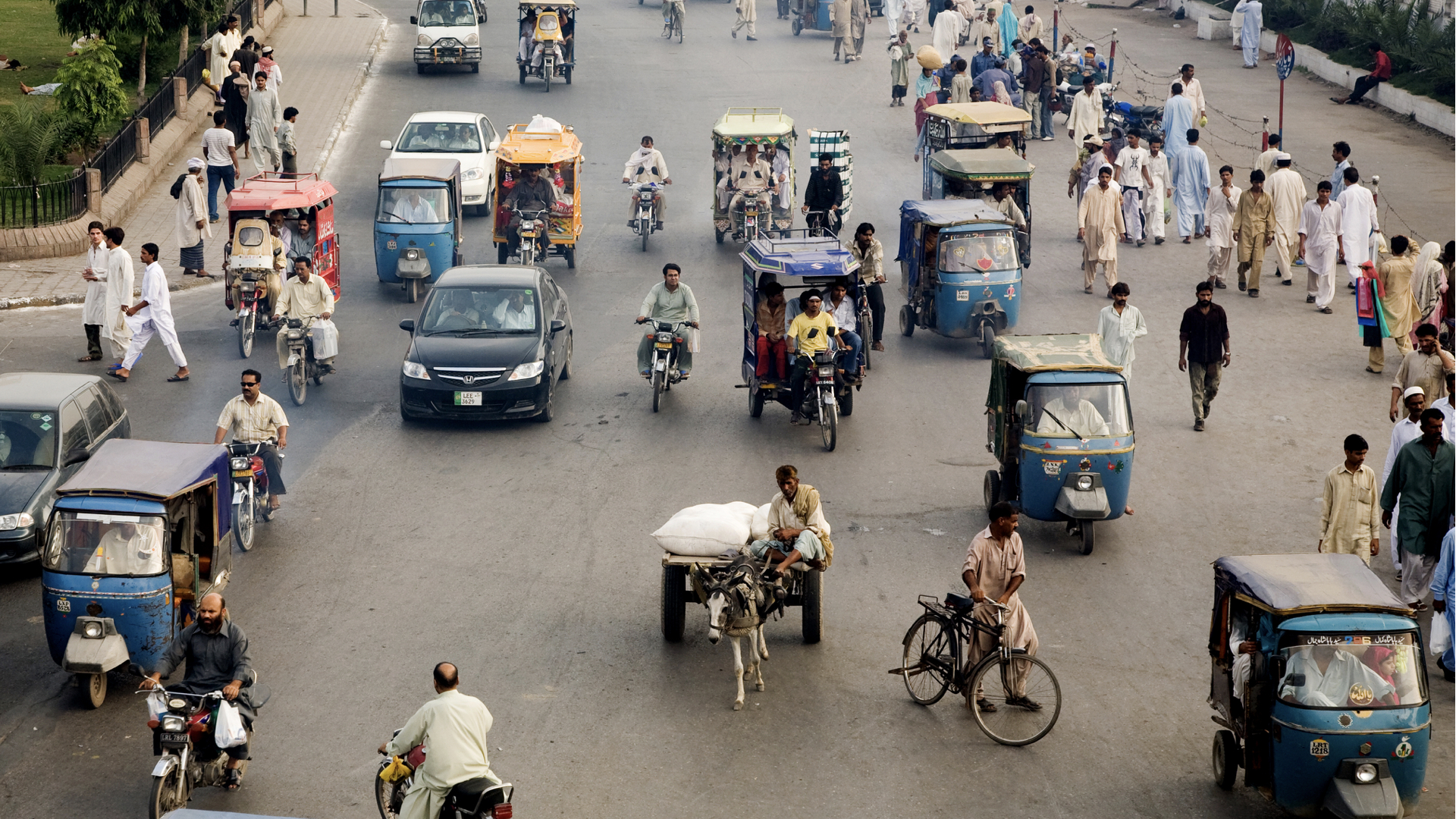
“Somehow, when we used this application, we found out that we still could not get the coordinates when users called,” Kamran says. Like app developers the world over, he and his team set about solving problems. “We changed our approach and we added live chat in as a feature. If somebody chats with us through the application, we can get the coordinates and we can respond immediately when we get the exact location of the user.”
There have been several versions of the Punjab Women’s Safety App and, through user feedback, it has been refined and improved. It is available from the Google Play Store.
“The main purpose of this application is to give you an immediate response in an emergency.”
Kamran explains that the early versions of the app asked for too much information at set-up. “But as the project evolved we realized that this was inhibiting many women,” he says. “There were many who did not want to enter their ID or their home address.”
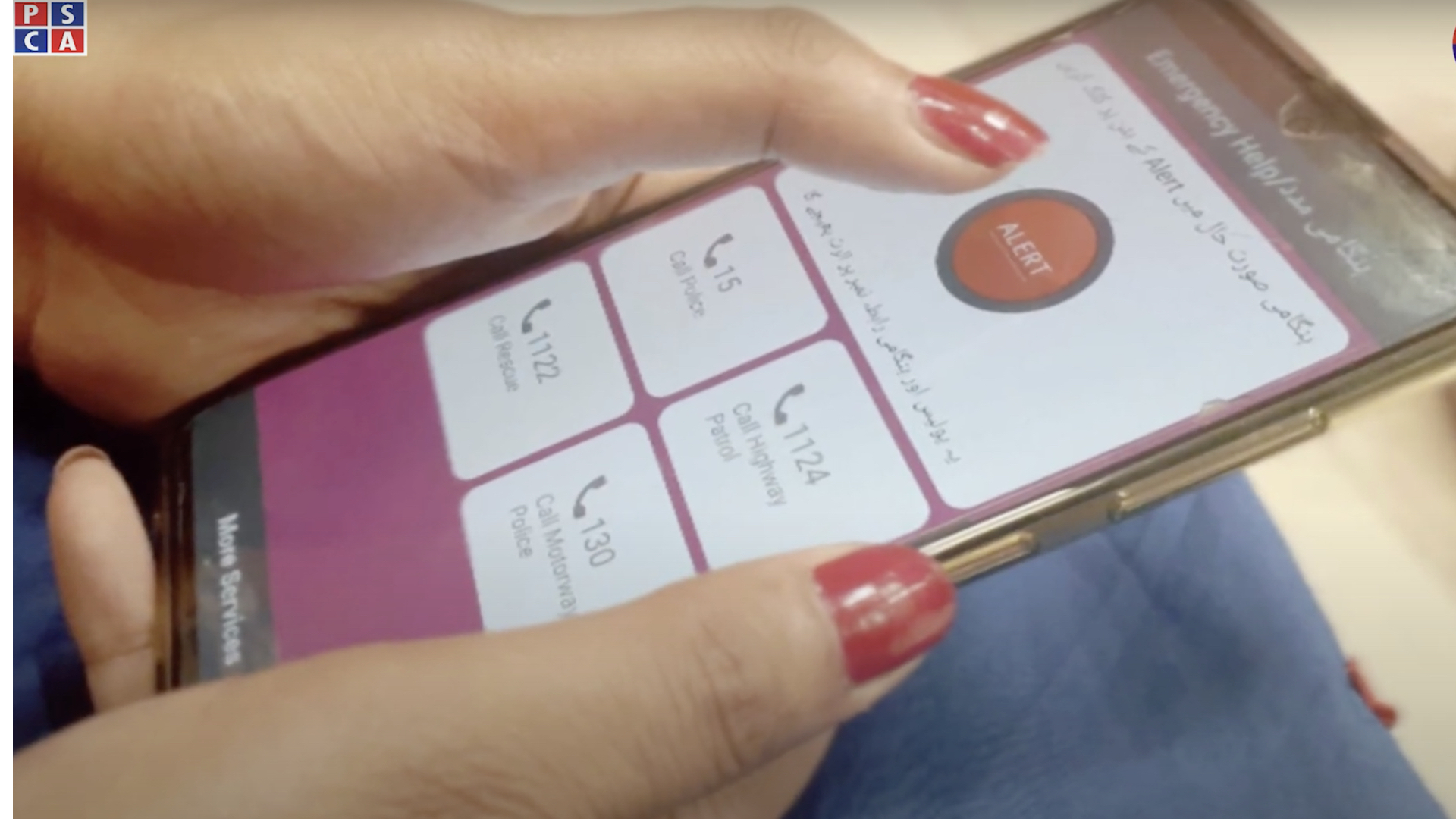
Kamran and his team made entering some information optional; the only information required was a name and a mobile number. As Kamran points out, “The main purpose of this application is to give you an immediate response in an emergency.”
To solve the problem of trying to inform family members while calling the police, the app includes option for women to add multiple emergency numbers. If women want to simultaneously tell family members and the police that they are in trouble or need an emergency response, the app can therefore do so automatically through the customized settings.
The Punjab Women’s Safety App brings together a confusing patchwork of emergency numbers in a single location. One of the app’s most important features is an alert button that is connected to the emergency response system and triggers the urgent dispatch of emergency services.
The live chat service also provides support for women and girls who are unable to call the police or seek help in other ways. “For some who are facing domestic violence, they are not allowed to move out,” Kamran says. “They are not allowed to go out and cannot go to the police station to register a complaint. At least they can use their mobile while sitting at home. They may be locked inside, but they can still access the emergency services through the chat.”
In addition to the alert service and the live chat, the app can also help survivors access information on their legal options. “We provided legal documents and general information for women,” says Kamran. “What are their rights? What is harassment?”
“If a girl experiences harassment or she’s threatened when she’s on her way somewhere, she can mark that point.”
Kamran considers one of the most interesting features of the app to be the risk mapping from user inputs. “Women and girls can mark their feedback on the GIS [Geographic Information System] map,” he says. “If a girl experiences harassment or she’s threatened when she’s on her way somewhere, she can mark that point.”
Users can classify the severity of the threat, and these pins allow other users to plan their routes to avoid risk. The mapping also gives police an insight into where women feel unsafe so that they can investigate and reduce the risk. Analysis of this information can inform targeted responses and strengthen referral pathways for women in those areas.
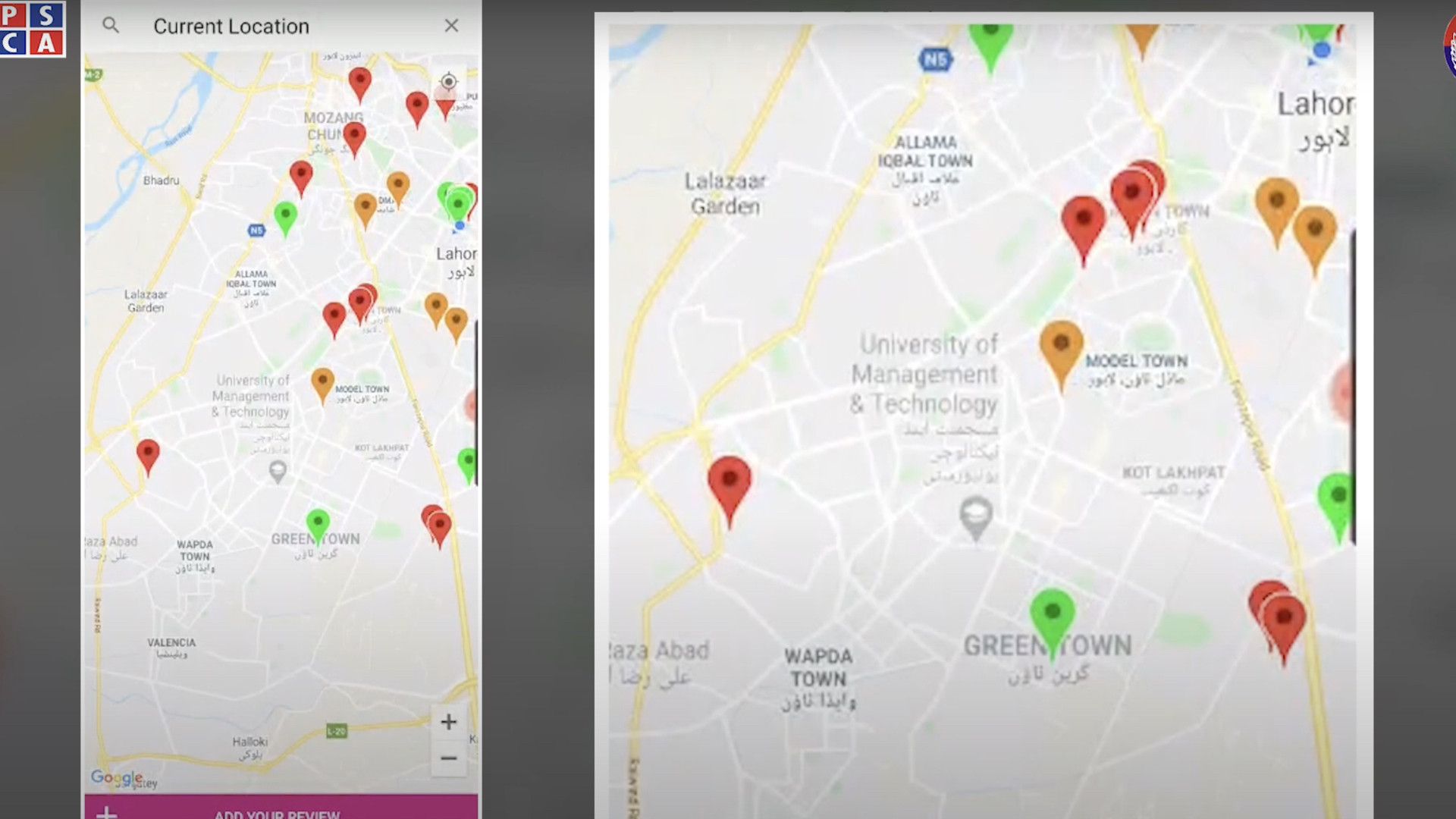
Kamran says that the project has been guided by “collective wisdom”, with inputs from women’s groups and technical guidance from UNFPA. He reports that downloads of the app are continually increasing, at over 9,000 and counting.
Kamran explains that, beyond improving helpline options, the safety app is part of a broader process of system strengthening. UNFPA has trained helpline responders by providing sessions on basic psychosocial support with a special focus on gender-based violence. “Our operators who are receiving these calls got gender-based violence training and training on how to respond to such callers,” he says.
Kamran points out that this is just the start of a more holistic approach to gender-based violence support: “First responders who are actually going to interact with these callers, the victims, in the field, they’re getting extra training as well.”
“First responders who are actually going to interact with these callers, the victims, in the field, they’re getting extra training as well.”
According to Kamran, the key to the app’s success will be getting police chiefs to take ownership of the process and use their rank to ensure that things get done. He reports that the degree of support for the app and for gender-based violence support varies but that there are inspiring examples in Punjab. “One district has formed a female first responders team,” he says. “They have been given motorbikes, they have been issued with licences, and they are responding to female callers.”
School and community outreach is planned across Punjab to talk to people about the app and get women and girls to sign up. As COVID-19 wanes, the Punjab Women’s Safety App is going from strength to strength, gaining new features and offering hope to survivors.
